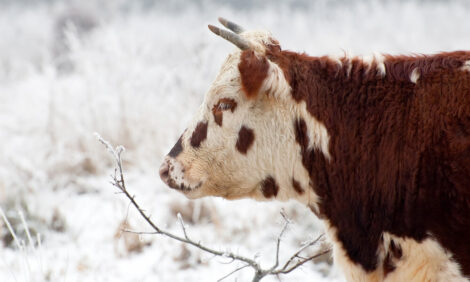



UK's NOAH launches new livestock vaccination guidelines
The new guideline supports vets and farmersThe UK's National Office of Animal Health (NOAH) has launched the Livestock Vaccination Guideline, according to a press release from the organisation. The aim of the guideline is to provide support to vets and farmers to improve the health and welfare of UK sheep and cattle and to support farm resilience and sustainable improvements in productivity.
The new NOAH guideline brings together current veterinary clinical experience and research to demonstrate a proactive, best practice approach to vaccination in the dairy, beef and sheep sectors. The guideline encourages discussion between vets and farmers to help them apply effective vaccination strategies on farm, catalysing change to ensure that the benefits from livestock vaccination are realised.
At the launch of the guideline Dawn Howard, Chief Executive of NOAH, along with the authors of the guidance, Jonathan Statham, Fiona Lovatt and Joe Henry, discussed the importance of an effective livestock vaccination strategy, and how vaccines must be utilised to their best advantage to keep our animals and ourselves, healthy.
This NOAH Guideline supports UK animal health and welfare ambitions, food security and safety and advances the competitiveness of the produce from our livestock.
“Prevention of disease is at the heart of NOAH’s vision for animal health and welfare in UK farming and our Livestock Vaccination Guideline aims to ensure that those who make decisions about animal health and vaccination across the industry and on the farm have access to best practice guidance," said Howard. “We are focusing on priority diseases and those conditions where increased uptake of vaccination can make a real difference to the level of disease across animal populations.
“This will not only help improve health and welfare on individual farms but also help raise health and welfare levels across the whole country, meaning UK farming will be better equipped to provide safe, high-quality and nutritious food, while also delivering the environmental benefits from healthier animals," she added.
“Livestock vaccination can be complex, but provides huge benefits, not just for animal health and welfare, but also has a positive impact on food, economic and job security in the UK," Howard said. "Having the right tools, medicines and technology to provide adequate prevention, diagnostics, monitoring and treatment has never been more important."
“Vaccination has many roles to play in delivering more profitable, sustainable, and higher welfare beef production, from helping to achieve good fertility in beef cows to reducing the impact of disease in calves, ranging from slow growth rates, morbidity and mortality," added Joe Henry, Royal College of Veterinary Surgeons recognised advanced practitioner.


